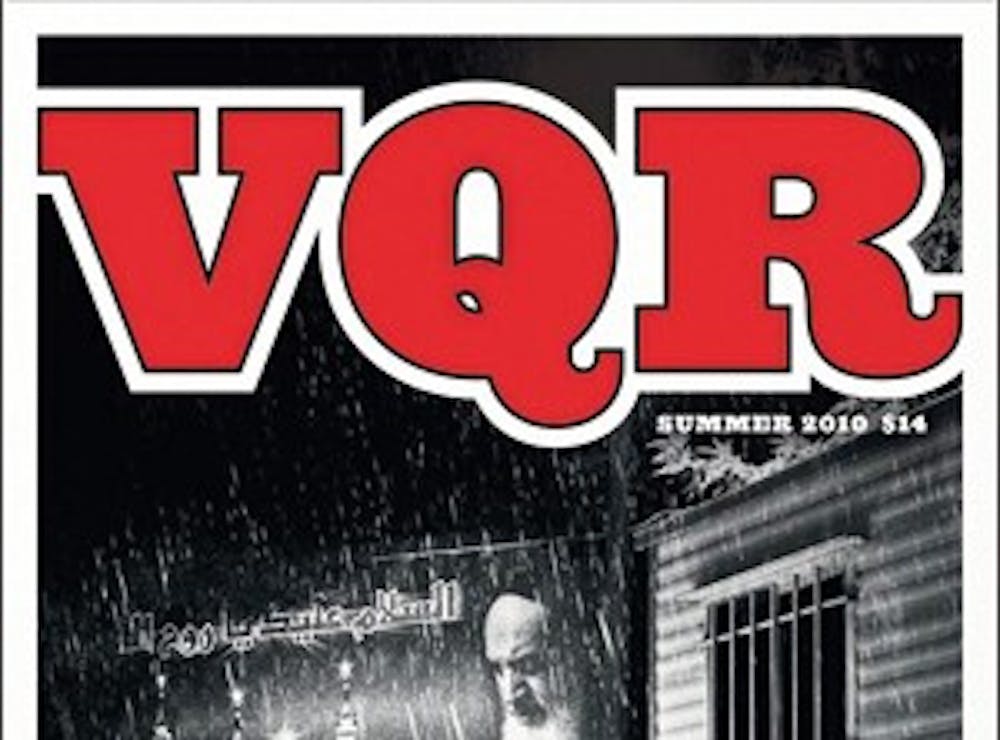The University's Internal Audit Department released a report of the Virginia Quarterly Review yesterday, thus ending the investigation into the suicide of Kevin Morrissey, former VQR managing editor.
Morrissey, who worked at the magazine starting in 2003, and who reportedly suffered from depression, shot himself July 30 at the coal tower near downtown Charlottesville. In the wake of his death, his family and friends accused VQR editor Ted Genoways of workplace harassment. Morrissey's suicide prompted questions concerning both his history of depression and harassment within the workplace, specifically from Genoways, which could have caused him to take his life.
The report reviewed the financial operations and management of VQR for the month of July. It concluded that although there were several institutional problems within the VQR offices, such as organizational structure and management-communication style, there were no specific allegations of bullying or harassment. The audit department reviewed more than 23,000 VQR staff e-mails and interviewed current and former staff members about financial, personnel and management issues.
Yet, some lingering issues with the investigation remain. Because of the large amount of information that had to be reviewed within a small time frame, the audit department stated that it "cannot guarantee that all information has been recovered from these sources."
Genoways' lawyer, Lloyd Snook, echoed these concerns, noting that the report "frequently uses very vague language and the passive voice ... It is not always easy for a reader of the Report to know who is being blamed for what."
Moreover, the investigation reviewed general VQR management, not specifically Genoways. Nevertheless, Snook said in a statement that the report seems to imply that the editor and his employees did not see eye-to-eye.
"It is sometimes difficult to define where the line gets crossed between a tough manager and an unreasonable one," the report stated.
None of the allegations made were found serious enough to cause concern, however. In its most pointed reference to Genoways and his alleged bullying, the report noted a distinction between editing and managerial skills, and suggested that Genoways - who is credited with transforming VQR into a larger, national-award winning publication - did not achieve a proper balance between the two.
"Not everyone has managerial skill, and the editor's capacity to supervise and lead his staff well, and to operate his department in accordance with University policies, is questionable," the report stated. Genoways apparently did not respond to e-mails promptly, which made it difficult for employees to get their work done and may have caused unnecessary frustration.
"A manager must always be mindful of leadership responsibility, the importance of people and the impact of good and bad interpersonal communications," the report stated.\nDespite allegations about faulty management, Snook emphasized that the no specific allegations were made concerning Genoways' style.
"Ted - to this day - has never been told of any specific complaint that any of his staff has had. There was never any personnel action taken against Ted," Snook said.
At the same time, the report noted that VQR's offices may benefit from implementing certain changes to its operational structure. For example, the report recommended that the University change its structure for receiving employee complaints to intervene more easily with institutional policies. Susan Carkeek, vice president and chief human resources officer, is developing this structure within Human Resources.
"The employee must be protected from potential retaliation, and the supervisor must be protected from negative consequences if the complaints should be unfounded or trivial," the report said.\nThe University also recommended that all employees should be encouraged to recognize and report workplace harassment or refer employees to existing resources to assist them with workplace conflict resolution.
In accordance with the report's findings, "important changes will be made to daily operations and management responsibilities," University spokesperson Carol Wood stated in an e-mail.\nOn Genoways' behalf, Snook said he believe Genoways will have no issue with these recommendations.
"Some of the management issues that the Report identified were reflected in Ted's July plan ... to move VQR to the office of the vice president for research. Ted looks forward to implementing that plan," Snook said. "The audit report apparently found no support for early accusations in the media that Ted Genoways was a bully - a conclusion with which we agree."
Although no one at VQR will lose their jobs, it is unclear whether Genoways or other employees will remain on board. Genoways received a Guggenheim Fellowship-funded project to research Walt Whitman's poems about the Civil War in April 2010 and is currently on leave for VQR's fall issue.\nMoving forward with the publication, "the University remains committed to publishing VQR," Wood said.







